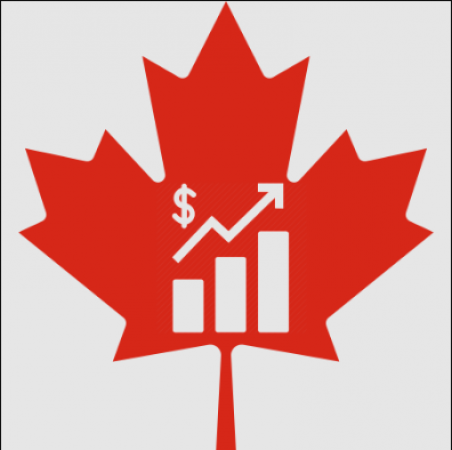
Ottawa: Data indicates Canada's economic activity unexpectedly increased by a small amount in July, while the country's gross domestic product (GDP) was flat in August. The surprise increase is not expected to have a significant impact on the central bank.
Canada's economy grew 0.1 percent in July, compared to a 0.1 percent decline forecast by analysts, according to data released Thursday by Statistics Canada. The first decline in service-producing industries since January was more than offset by growth in goods-producing industries.
Although the economy performed better than expected this summer, Royce Mendes, head of macro strategy at Desjardins Group, said in a note that the performance was still not particularly impressive.
Also Read: UK PM Liz Truss defends mini-Budget as the ‘right plan’
According to analysts, modest growth in July and a reduction in growth prospects in August point to third-quarter annual GDP growth at around 1%, well below the Bank of Canada's most recent forecast of 2.0%. Is.
Benjamin Reitz, a Canadian rates and macro strategist at BMO Economics, wrote in a note that after the first half of the year, the pace is "slowing as multi-decade-high inflation and rapidly rising interest rates weigh on the economy." "
To counter inflation, which began to slow slightly in July but is still running at levels not seen in nearly 40 years, the Bank of Canada earlier this month raised rates by 75 basis points to 3.25. percent done.
Also Read: UK PM Liz Truss defends mini-Budget as the ‘right plan’
Growth was driven by oil sands extraction, which increased production by 5.1 percent, according to July GDP data. Crop production also increased by 7.2 percent mainly due to increase in the quantity of wheat and other cereals.
Since Russia's invasion of Ukraine on February 24, which Moscow refers to as a special military operation, Canadian demand for wheat has increased, leading to an increase in export volumes.
According to Statscan, a 7.1 percent drop in production at gas stations contributed to a sharp contraction in Canada's retail business sector in July, sending it to its lowest level since December 2021. However, this trend is likely to reverse in August.
Due to a drop in bar and restaurant traffic in July, accommodation and dining services also experienced a decline.
Also Read: US: Market's increase is still damaging major world currencies
The Bank of Canada was expected to raise interest rates on its upcoming decision in late October as a result of high inflation, but then, according to economists, the situation may change.
According to Mendes, the reason for the slow pace of economic growth is that the Bank of Canada will only raise interest rates once again in October. After the increase in October, the central bank's policy rate is expected to rise to 4 per cent in December or January, according to money markets.